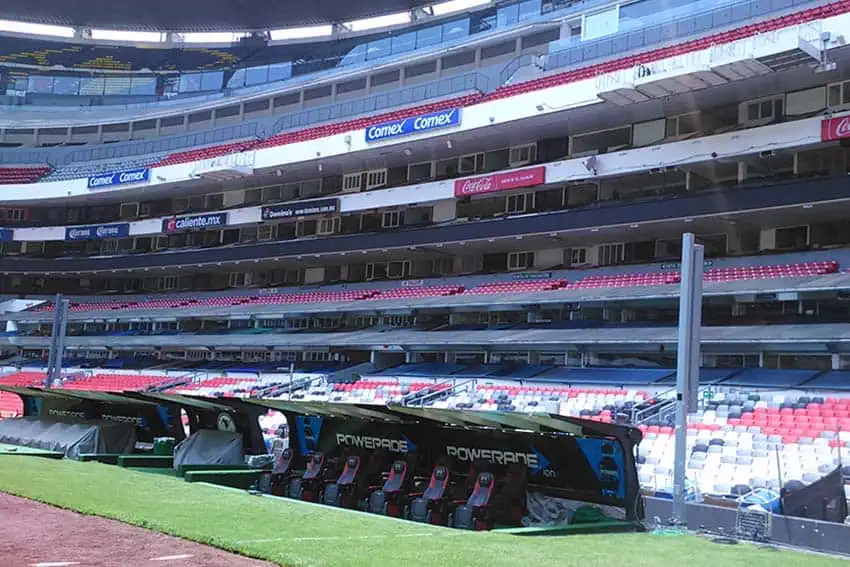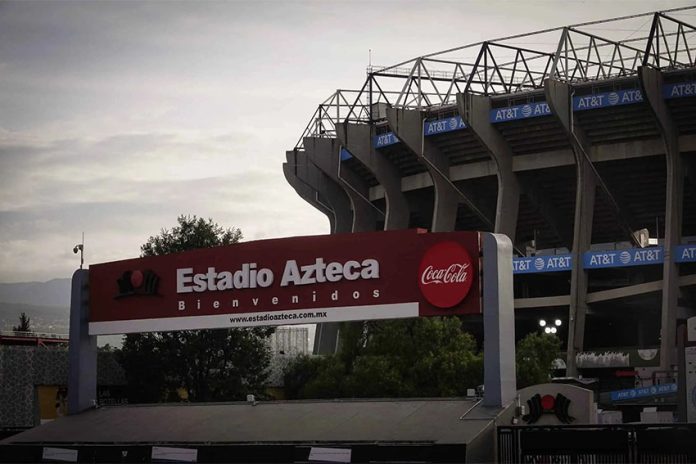Mexico City’s iconic Azteca Stadium is gearing up to become the first stadium to host matches for three separate FIFA World Cup tournaments. But it has not been smooth sailing.
In late March, the Sipse news agency revealed that FIFA — soccer’s world governing body — was disappointed with the pace of the required stadium renovations. One source claimed Azteca was six months behind schedule, in part because Club América resisted changing stadiums mid-season.

This prompted speculation that Azteca Stadium could be replaced as a venue for the 2026 World Cup. The Cup will be hosted together by Mexico, the United States and Canada.
Now, this week, a new controversy has burst into full view.
FIFA typically demands full control of all World Cup stadiums, and for the matches that Azteca Stadium will host, an agreement was signed granting that power. However, an association of 134 box seat owners are determined to maintain access to their seats, claiming contractual rights.
The dispute is rooted in how the stadium’s construction was financed back in the 1960s. The Associated Press reported this week that “boxes were sold to private investors for 115,000 pesos” (about US $9,000 at the time), “giving the owners rights to use them for 99 years. That included access to soccer matches, concerts and other events, including the 1970 and 1986 World Cups in Mexico.”
The box owners formed their association about nine months ago.
Association spokesman Roberto Ruano recalls that the box seats were not an issue during the 1970 World Cup and that FIFA allowed box owners full access during the 1986 World Cup. Although he expects FIFA to respect the contracts, the Mexican Soccer Federation (FMF) has stepped in to act as an intermediary.

News magazine Proceso reported that former FMF president Justino Compean has been arranging compensatory payments to box owners that voluntarily cede control of their boxes. Ruano confirmed this but said that those owners are not members of his association.
Attorneys told Proceso that forcing box owners to cede their rights is illegal, but FIFA has been known to pressure host nations to bend their laws. In 2014, FIFA convinced Brazil to suspend a law prohibiting beer sales at stadiums, and the same thing occurred in 2022 in Dubai.
When asked by the AP about the controversy, FIFA said: “Specific details on fan access and other match information will be announced in due course.”
The FMF declined to comment, while Grupo Televisa — the owner of Azteca Stadium through the public limited company Ollamani — said it could not discuss ongoing negotiations but expressed confidence that a satisfactory agreement would be reached.
With reports from El Financiero, Proceso and Associated Press
